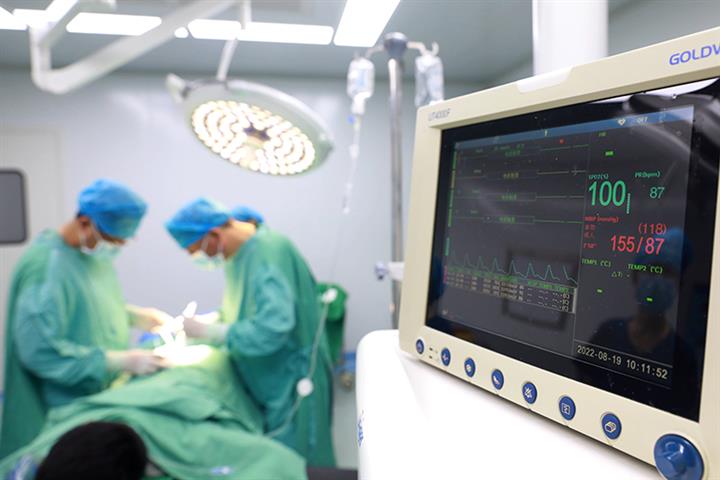 Surgeons Perform China’s First Operations to Implant Absorbable Magnesium Alloy Coronary Stents
Surgeons Perform China’s First Operations to Implant Absorbable Magnesium Alloy Coronary Stents(Yicai Global) Nov. 16 -- A Chinese surgical team has carried out the country’s first procedures to implant absorbable magnesium alloy coronary stents, which effectively leave no metal residue in the body.
In two surgeries yesterday, a team led by Ge Junbo, a member of the Chinese Academy of Sciences, used sirolimus eluting absorbable magnesium alloy coronary stents made by Germany’s Biotronik, Yicai Global learned.
The procedures were performed at Boao Super Hospital and Ruijin Hainan Hospital, which are affiliated with the School of Medicine at Shanghai Jiao Tong University, in the Boao Lecheng International Medical Tourism Pilot Zone of southern Hainan province.
Coronary stent implants are common but there is still room for improvement in terms of materials, Ge told Yicai Global. Magnesium is a microelement in the human body, and 95 percent of a magnesium alloy coronary stent can degrade within a year of being implanted, basically leaving no residue, he said.
Ge is also a chief physician at Zhongshan Hospital, an affiliate of Fudan University. He and his team spent 15 years developing China’s first absorbable stent made from polylactic acid, which takes 24 to 36 months to degrade. It went to market in March 2020.
Coronary stent implants are an important way of treating heart disease. Last year, 1.3 million patients in China had such implant surgery, meaning 1.8 million stents were used based on an average 1.4 stent per patient.
Editors: Dou Shicong, Peter Thomas